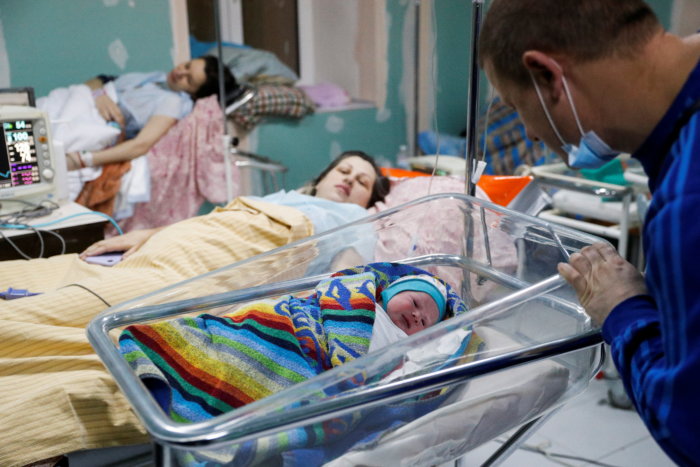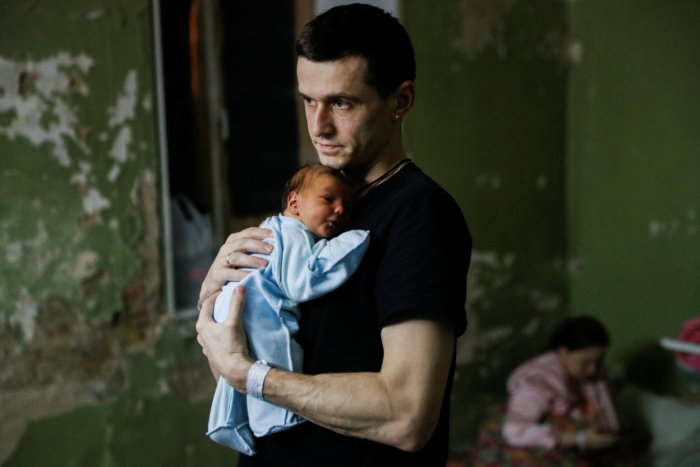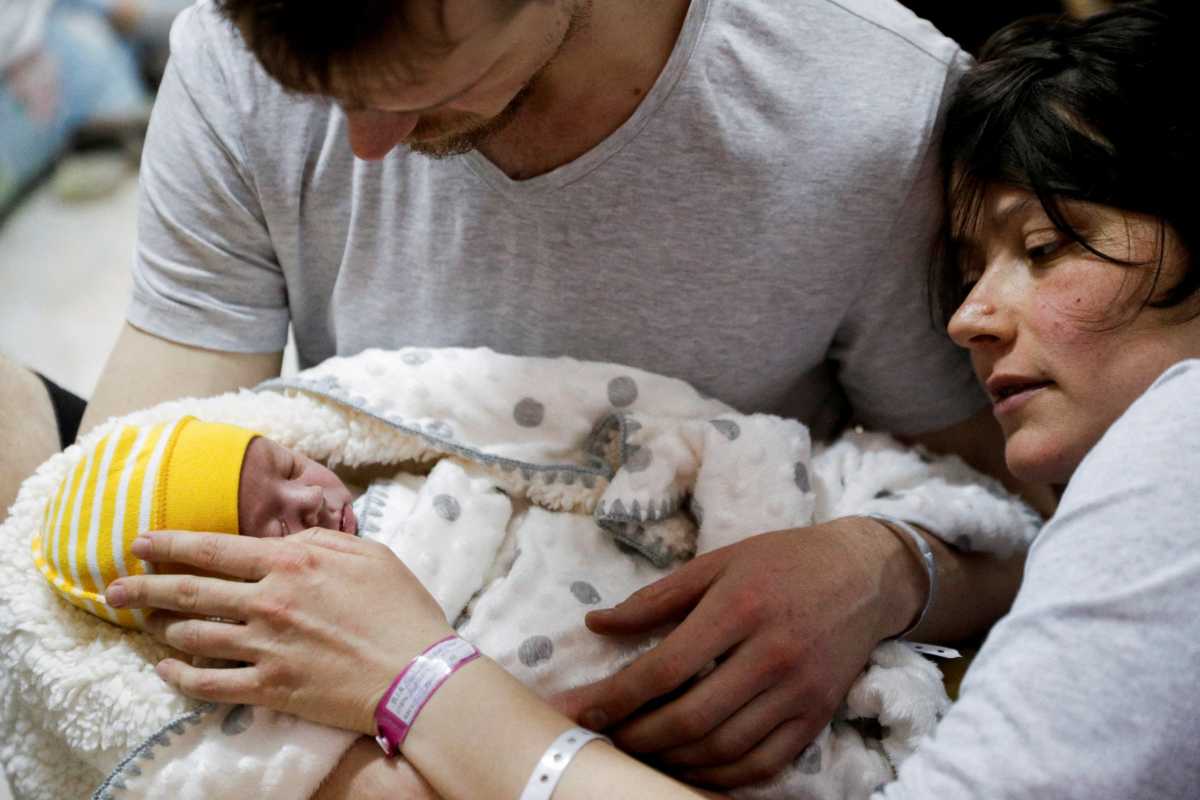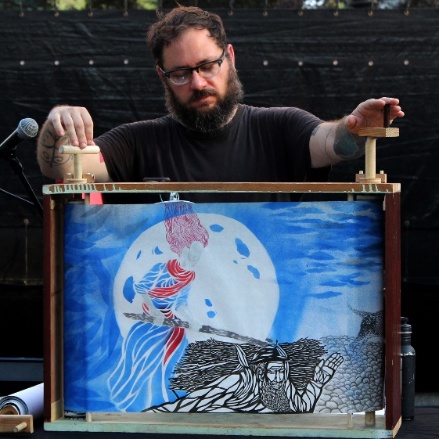By Mehmet Emin Caliskan
Sitting on a temporary bed set up along a gloomy underground passageway, expectant mother Alena Shinkar reads a book to try to stay calm.
The Ukrainian has been at a Kyiv maternity hospital since before the Russian invasion began on Feb. 24 waiting to give birth, but with the capital city under siege from rockets and missiles, her nerves are fraying.
“I should not be stressed now so I am trying to cool myself down, but of course it is terrible what is happening,” she told Reuters in English.
“We are living in real hell. I never imagined that something like this could happen in the 21st century.”

She said she saw women who had just given birth by Caesarean section rushed from the wards to underground passageways to protect them from bombardment, with no time to rest in between.
Elsewhere in the facility, young mothers are treated by nurses and newborns rest in incubators or lie in parents’ arms, being rocked back and forth.
Yula, who gave birth to a son, Mark, on Feb. 28, praised hospital staff for carrying on during a conflict that Russia describes as a “special military operation.”

“We are safe here, the best personnel in the world, the best staff works here and we are very proud of them.”
Dmytro Govseyev, head of the maternity hospital, said most of his team had not left the premises since the invasion began a week ago.
“About 70% of staff stay here permanently, we take turns at work,” he said. “The only difference is that labour that normally takes about 10, 15 hours starts and then there may be an air raid alert and the women need to move to the shelter.”
Back underground, Shinkar recalls the moment the attack on Kyiv began.
“I woke up on Feb. 24 at 5 o’clock in the morning from the hit (rocket strike), I heard the explosion and women scream. The war started. And I could not believe. I thought it was some nightmare, but it is what it is. This is how we are living.”
“Hopefully, this one will see peace,” she added, rubbing her stomach.
Reuters




























